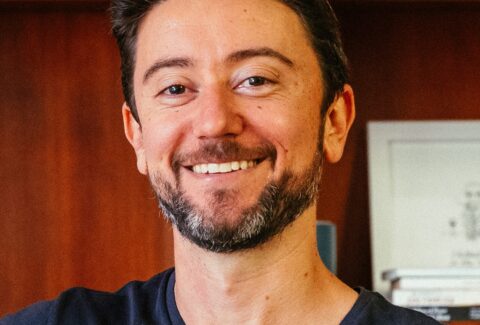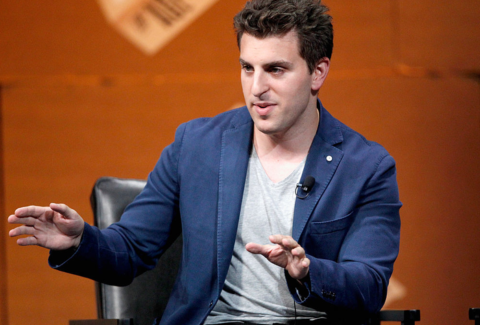Making a positive case for AI
Welcome to the twenty-fourth edition of ‘3-2-1 by Story Rules‘.
A newsletter recommending good examples of storytelling across:
- 3 tweets
- 2 articles, and
- 1 long-form content piece
Let’s dive in.
🐦 3 Tweets of the week

Simple yet impactful graph – quite amazing to see the 10+ year impact of the 2008 financial crisis.

Such an interesting way to show India’s population dominance – One in every 40th human on earth is from UP.

Perhaps there is hope yet for Indian cities!
📄 2 Articles of the week
a. ‘Why AI Will Save the World’ by Marc Andreessen
In contrast to all the doomsday coverage of AI, Marc Andreesen (co-founder of VC firm a16z) makes a strong 7,500-word pitch for why AI is vital for humanity.
He starts with clear BLUF (Bottom-Line-Up-Front):
The era of Artificial Intelligence is here, and boy are people freaking out. Fortunately, I am here to bring the good news: AI will not destroy the world, and in fact may save it.
I loved one of the concepts he talks about – of ‘baptists and bootleggers’:
Economists have observed a longstanding pattern in reform movements of this kind. The actors within movements like these fall into two categories – “Baptists” and “Bootleggers” – drawing on the historical example of the prohibition of alcohol in the United States in the 1920’s:
– “Baptists” are the true believer social reformers who legitimately feel – deeply and emotionally, if not rationally – that new restrictions, regulations, and laws are required to prevent societal disaster. For alcohol prohibition, these actors were often literally devout Christians who felt that alcohol was destroying the moral fabric of society. For AI risk, these actors are true believers that AI presents one or another existential risks – strap them to a polygraph, they really mean it.
– “Bootleggers” are the self-interested opportunists who stand to financially profit by the imposition of new restrictions, regulations, and laws that insulate them from competitors. For alcohol prohibition, these were the literal bootleggers who made a fortune selling illicit alcohol to Americans when legitimate alcohol sales were banned. For AI risk, these are CEOs who stand to make more money if regulatory barriers are erected that form a cartel of government-blessed AI vendors protected from new startup and open source competition – the software version of “too big to fail” banks.***
The problem with the Bootleggers is that they win. The Baptists are naive ideologues, the Bootleggers are cynical operators, and so the result of reform movements like these is often that the Bootleggers get what they want – regulatory capture, insulation from competition, the formation of a cartel – and the Baptists are left wondering where their drive for social improvement went so wrong.
We just lived through a stunning example of this – banking reform after the 2008 global financial crisis. The Baptists told us that we needed new laws and regulations to break up the “too big to fail” banks to prevent such a crisis from ever happening again. So Congress passed the Dodd-Frank Act of 2010, which was marketed as satisfying the Baptists’ goal, but in reality was coopted by the Bootleggers – the big banks. The result is that the same banks that were “too big to fail” in 2008 are much, much larger now.
So in practice, even when the Baptists are genuine – and even when the Baptists are right – they are used as cover by manipulative and venal Bootleggers to benefit themselves.
And this is what is happening in the drive for AI regulation right now.
The comprehensive article covers Marc’s perspective on the five main risks posed by AI:
AI Risk #1: Will AI kill us all?
AI Risk #2: Will AI ruin our society?
AI Risk #3: Will AI take all our jobs?
AI Risk #4: Will AI lead to crippling inequality?
AI Risk #5: Will AI lead to people doing bad things?
Here’s Marc on jobs:
The fear of job loss due variously to mechanization, automation, computerization, or AI has been a recurring panic for hundreds of years, since the original onset of machinery such as the mechanical loom. Even though every new major technology has led to more jobs at higher wages throughout history, each wave of this panic is accompanied by claims that “this time is different” – this is the time it will finally happen, this is the technology that will finally deliver the hammer blow to human labor. And yet, it never happens.
We’ve been through two such technology-driven unemployment panic cycles in our recent past – the outsourcing panic of the 2000’s, and the automation panic of the 2010’s. Notwithstanding many talking heads, pundits, and even tech industry executives pounding the table throughout both decades that mass unemployment was near, by late 2019 – right before the onset of COVID – the world had more jobs at higher wages than ever in history.
You may not agree with all the points, but the essay makes for a clear, compelling read.
b. ‘How to make a statement with just the handles a brand follows on Twitter?’ by Karthik Srinivasan
I loved how KFC put in this cool Easter Egg on their Twitter – great find by Karthik:


📢 1 long-form listen of the week
a. AI Will Save The World with Marc Andreessen and Martin Casado
This podcast episode is a good companion to the earlier article.
Marc covers most of the points made in the article, but its a useful listen since he adds/elaborates on some of the aspects; plus listening to it in his voice is so much better.
That’s all from this week’s edition.
Photo by Hitesh Choudhary on Unsplash







